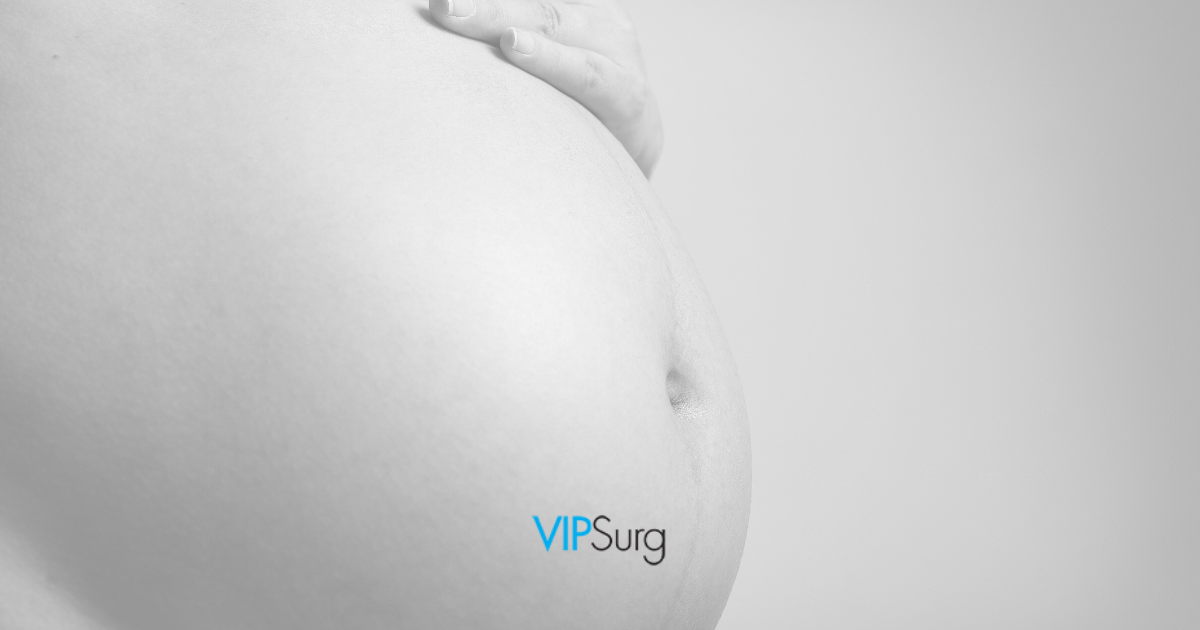Pregnancy is a leading cause of hernia development because of the constant pressure on the abdomen, which becomes stretched and weakened over the course of the pregnancy. Typically, pregnant women will first notice their hernia after the birth of their child however, in some cases, the hernia will visibly manifest during the pregnancy. Unlike most symptomatic hernias, waiting until after birth to repair the hernia is the preferred course of action. And while a hernia repair does not directly typically affect the pregnancy, some of the inherent risks of surgery become more pronounced in pregnant women.
The most important advice that we can offer is if you are looking to get pregnant and have a hernia you should, unless otherwise indicated by your surgeon, undergo a hernia surgery BEFORE getting pregnant. This reduces the risk of any complications during pregnancy and avoids many of the potential risks of having surgery while pregnant.
What if I develop a hernia during pregnancy?
The biggest of a hernia strangulation or incarceration – both emergency issues. This remains true for pregnant patients as well. If you develop a hernia during your pregnancy, the first and most important visit is to your OB/GYN, followed by a qualified hernia surgeon. Your medical team will determine if the benefits of surgery outweigh the risks during your pregnancy. If surgery is required, it is typically performed during the second trimester. A strangulated hernia must be repaired immediately, so don’t hesitate in going to your nearest emergency room.
What do I do if surgery is not required?
If surgery is not required, taking a commonsense approach to hernia management during the pregnancy is of paramount importance. First, it is important to know the signs of hernia complications. However, it is also important to remember is that complications are rare – so don’t fret. The goal, however, is to minimize the amount of sudden pressure placed on the hernia during your pregnancy. Interestingly, pregnancy itself typically does not make the hernia significantly worse. A couple practical tips are listed below.
- Avoid heavy lifting and significant physical activity. This is good advice both for preventing the enlargement of the hernia and also keeping your pregnancy uncomplicated
- Physically supporting the area of the hernia during coughs, sneezes and laughs is also helpful to preventing discomfort and enlargement of the defect. We typically suggest keeping a small pillow handy, which can be used to put pressure on the hernia. You can also use your hand to create counter-pressure
- Stay in contact with your OB/GYN and, if necessary, your general surgeon keeping them updated on your pregnancy and the size of the hernia as well as how you feel.
Once you have delivered your baby and are fully recovered from the birthing process, which typically takes between four and six months, you can look into options for repairing the hernia. Of course, be sure to speak with your OB/GYN before any follow-on surgical procedure to be sure you are ready for surgery.
